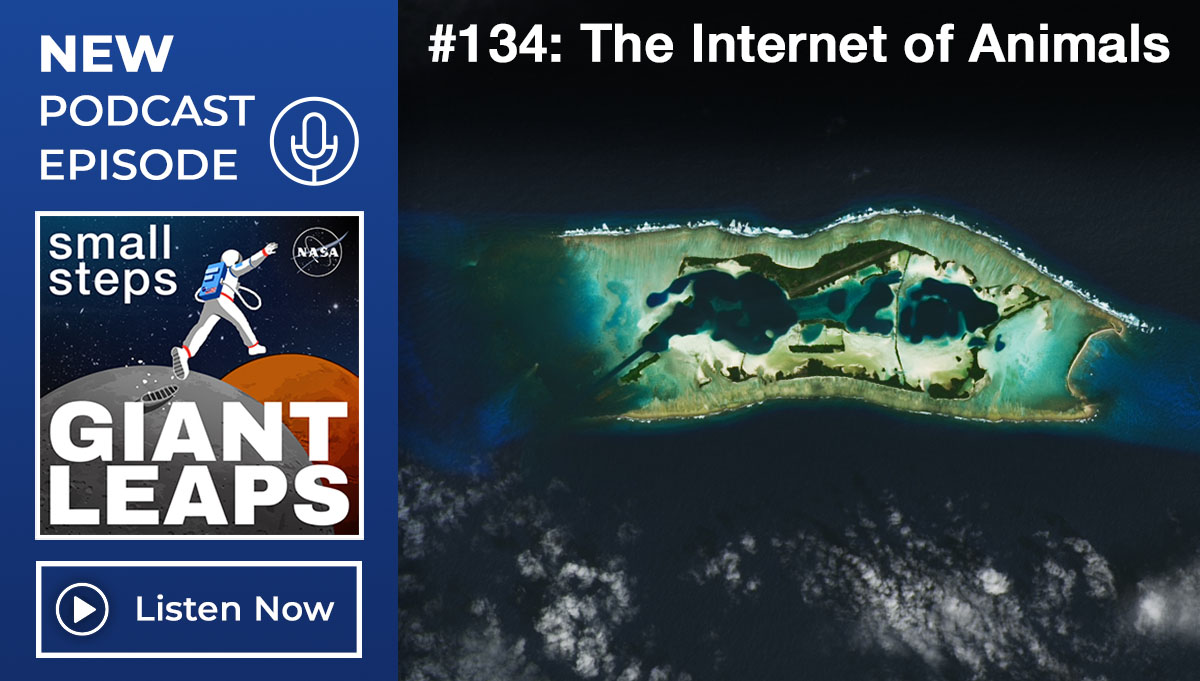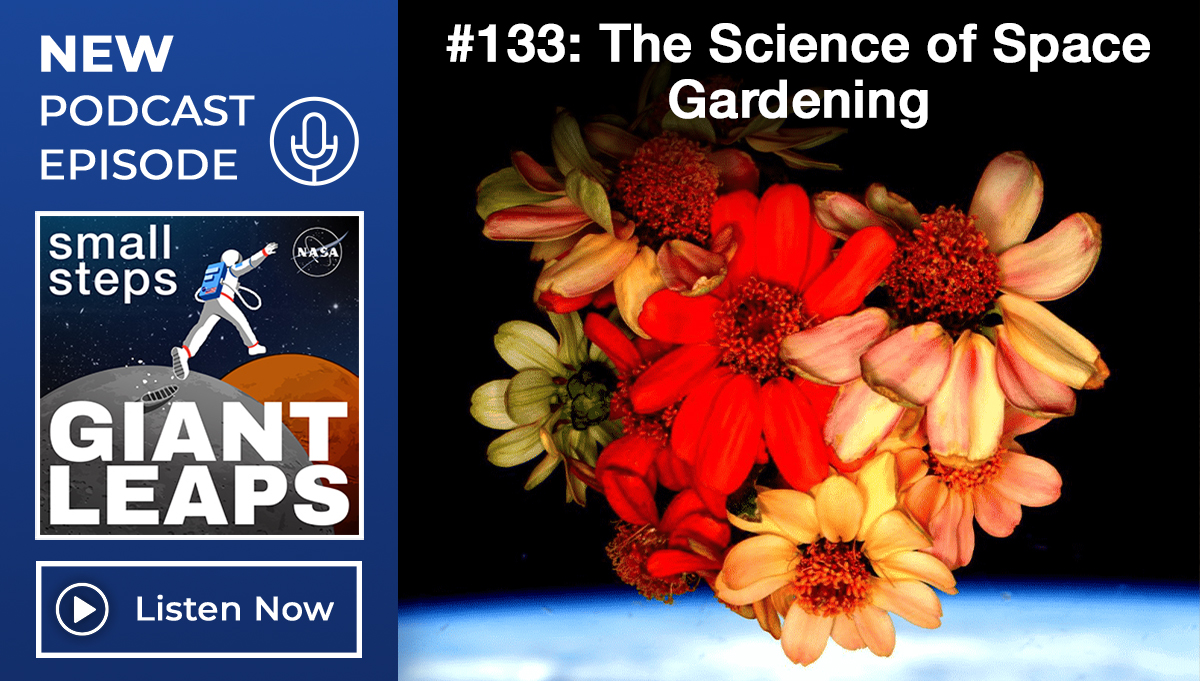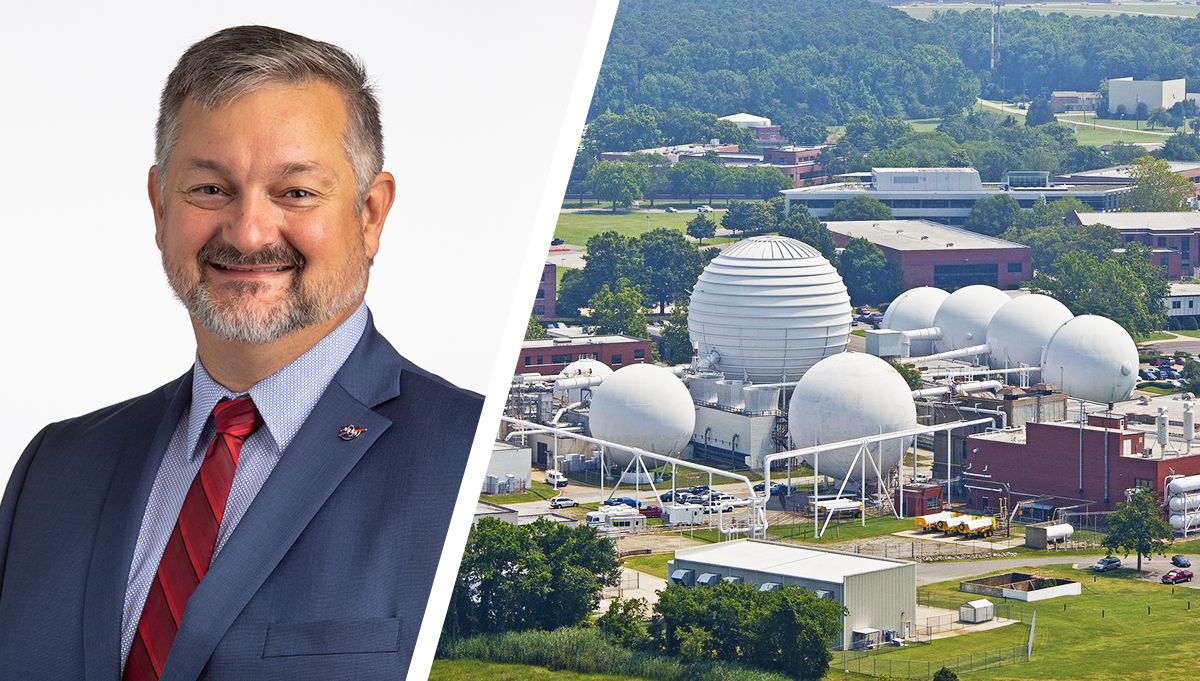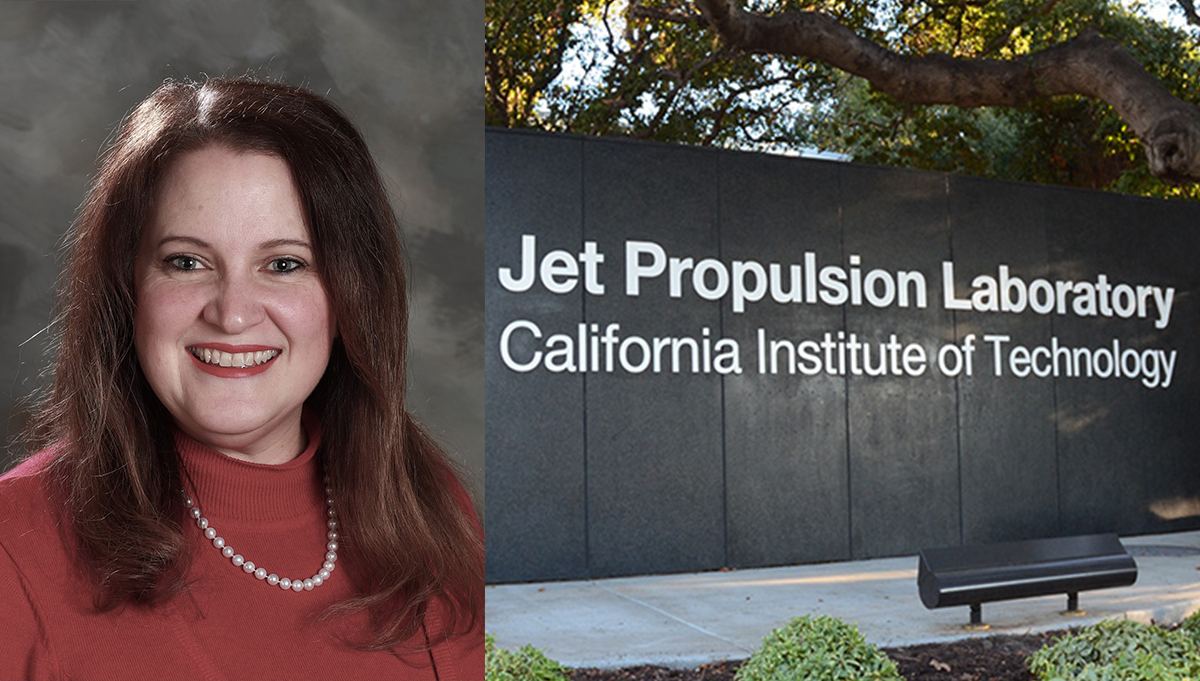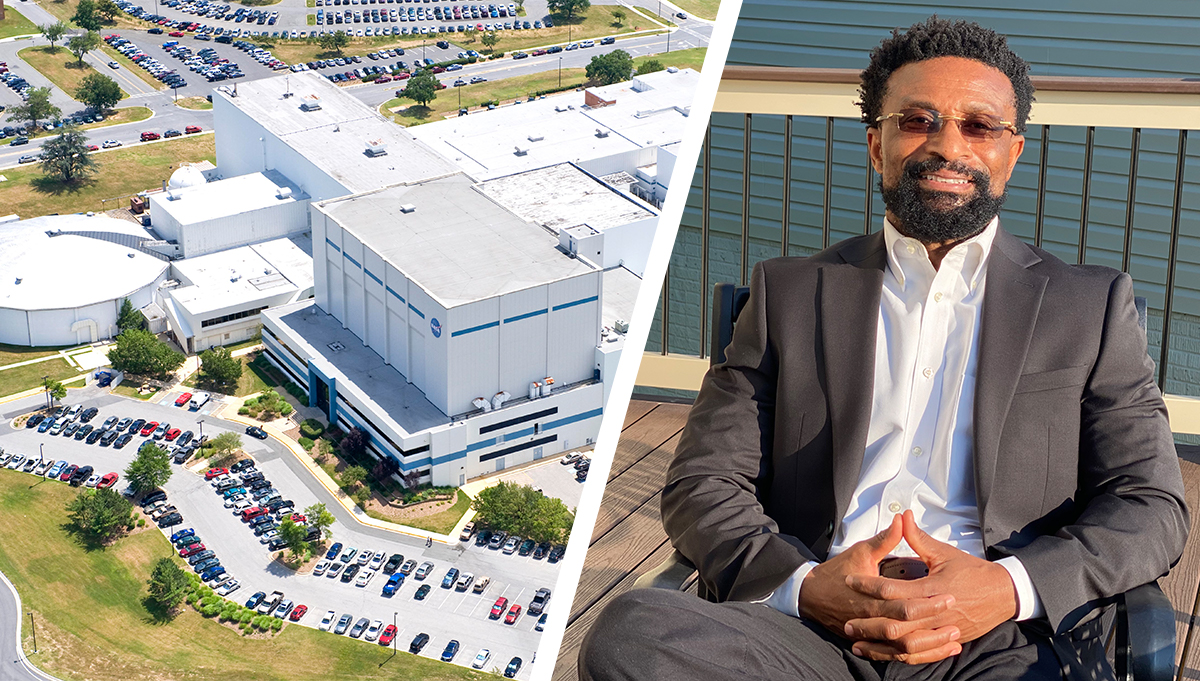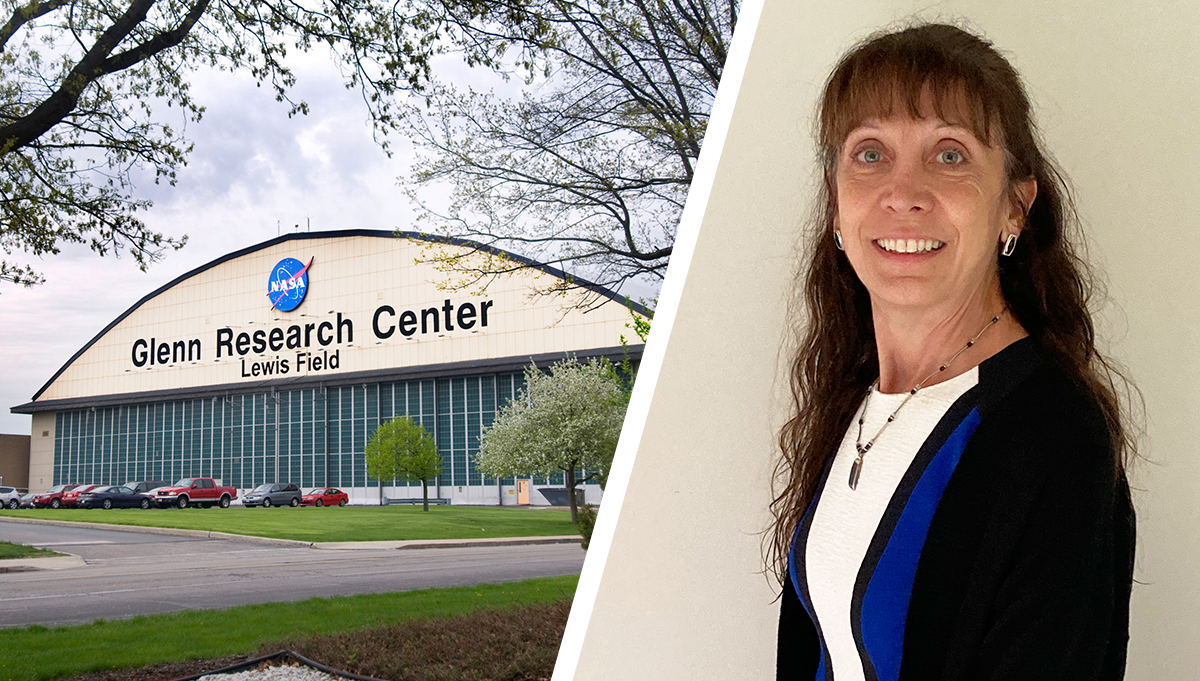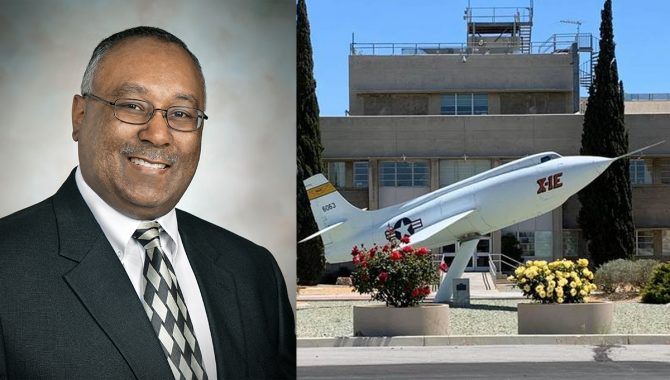
AFRC CKO Mark Davis.
Credit: NASA
Mark Davis discusses knowledge sharing at NASA’s Armstrong Flight Research Center.
Mark Davis serves as the Chief Knowledge Officer (CKO) for NASA’s Armstrong Flight Research Center (AFRC). Davis is Branch Chief of AFRC Research Engineering Operations and is a Research Aerodynamic Engineer specializing in flight test techniques, airdata systems development and hypersonic research. His branch provides engineering support for all research efforts performed at Armstrong. Currently, each directorate at the center provides its own knowledge management program, and Davis is working to integrate all of the different efforts into one centerwide program.
Davis began his NASA career over 30 years ago as a co-op and has worked on three X-planes, 10 different aircraft and two rockets. He has designed airdata systems that have gone hypersonic and flown into space. Davis has worked as a research engineer specializing in flight test techniques, development of aerodynamic research instrumentation, aerodynamic characterization of concept and experimental vehicles, in-flight flow visualization techniques, airdata systems development and hypersonic research.
What are your thoughts on how knowledge sharing affects mission success?
I have seen what happens to projects that share knowledge and those that do not share. I have found that missions that share benefit greatly from the experience the team gains and are able to avoid issues that can slow down progress or cost the team in productivity. The missions that don’t share often run into the same pitfalls and thrash about as they try to deal with these issues. When they discover that there was another mission that went through the same experience, they always wonder why they didn’t talk to them to gain the knowledge that would have helped them through their problems.
How do you think NASA’s technical workforce benefits from knowledge sharing?
NASA technical teams can avoid a lot of pitfalls by learning about past mistakes and recognizing the possible mistakes before they occur. Also, they can start a new project strong by incorporating best practices in the formulation phase. This will allow them to start strong and maybe stay on schedule and on budget, depending on what additional challenges occur during the life span of the project.
What are some of the most prominent knowledge challenges in your organization?
The most prominent knowledge challenge is having people understand that knowledge management is relevant to the work that they perform here at NASA. Many people have a hard time seeing how they can use previous lessons learned that apply to issues they are currently facing. They also do not see how they can leverage best practices earned the hard way and how those practices can be applied to their benefit on current projects. So, relevance is the biggest problem I see, next to finding an efficient way to find those chunks of knowledge that can used for the situation an individual is encountering.
Are you observing any trends or cultural shifts that affect knowledge management going forward?
New staff members seem to be more computer savvy, which in this case is very timely, because I know that the knowledge management group is looking at bringing everything into the digital realm.
What’s the biggest misunderstanding that people have about knowledge?
One of the biggest misunderstandings that people have deals with uniqueness. At Armstrong we conduct flight research on things that have been only dreams in many people’s minds. Here, researchers face new and unique challenges on every mission that they partake in. The thing is, the research may be unique, but the steps that are used to address these challenges are very similar. The challenges may be unique, but how you deal with them follows similar steps that were used on many missions before this one.
Who are the biggest users of the knowledge services in your organization?
I actually find that people who have learned things the hard way are more likely to be interested in using the knowledge services that are available.



